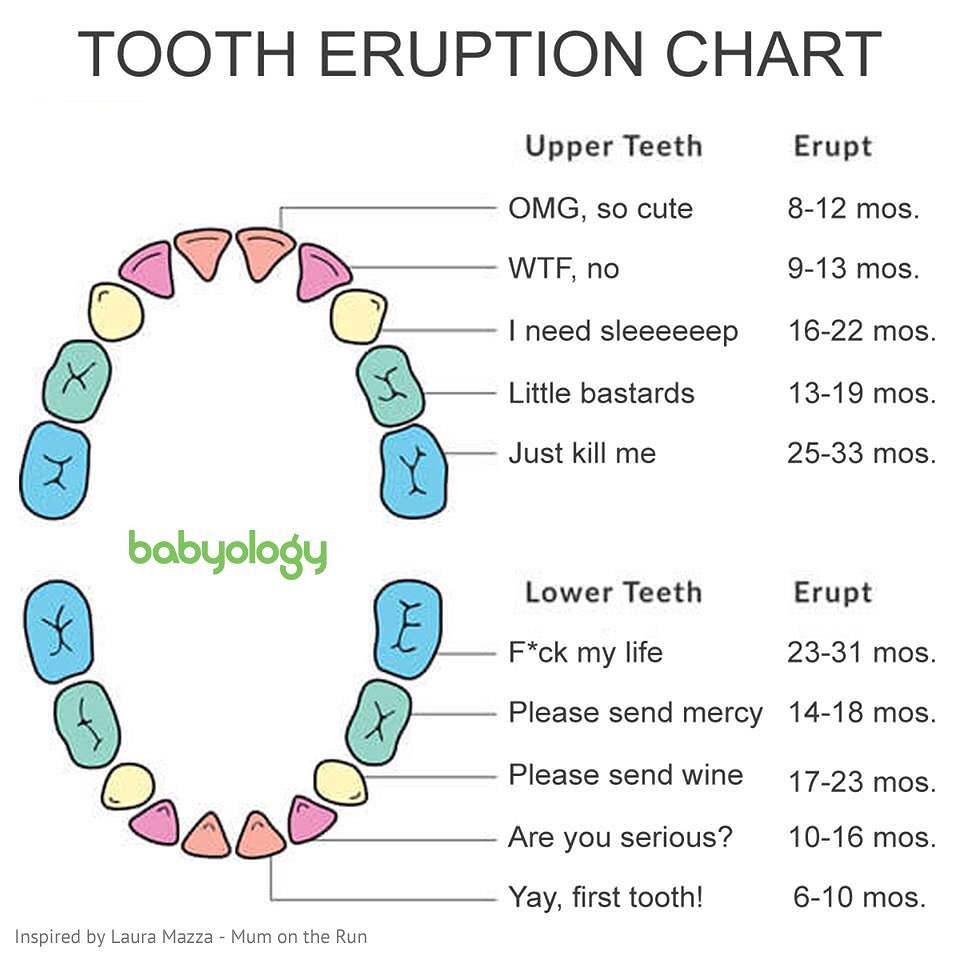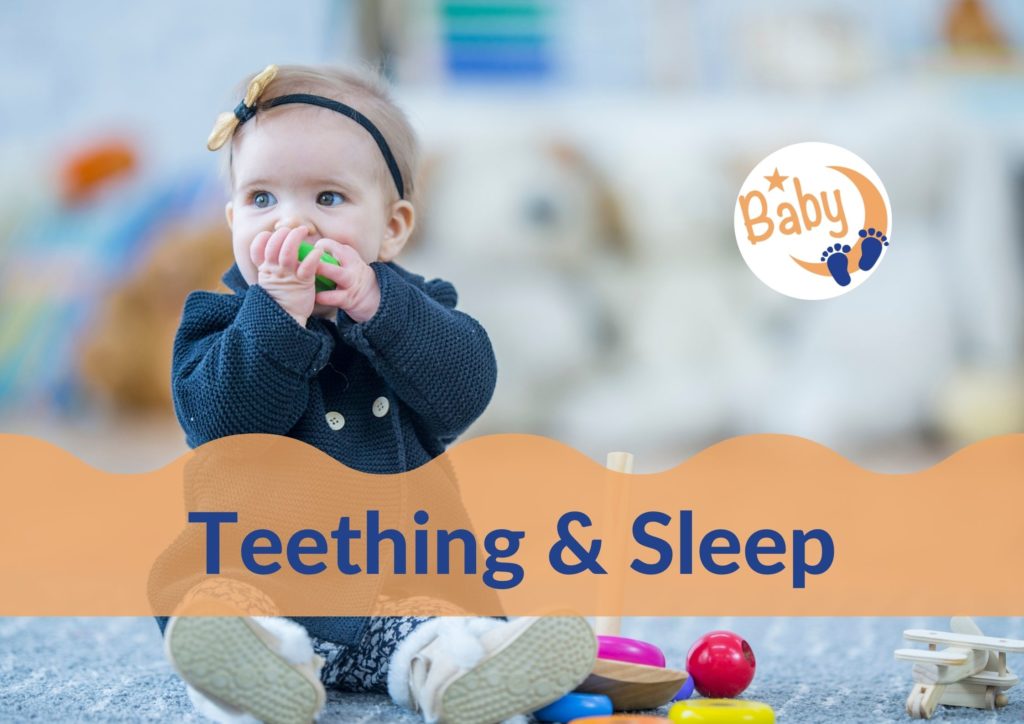It must be the teething…
Parents tend to blame teething for many issues with their baby, especially during their first year of life. If baby has temperature, diarrhoea or a rash, if he is drooling or just grumpy, it must be the teething. Moreover, almost every time a baby has constant sleep disruptions, parents are pretty sure that – you got it – it must be the teething. 😉
However, science has proved that many of the above mentioned symptoms could be just temporarily associated with teething. In other words, if your baby has some of these reactions for more than 3-4 days (especially the sleep issues), it is more likely it’s not about the teething.
It is true that the eruption of a tooth can cause some pain, but this process usually lasts only about a couple of days and does not happen only at night. Usually when such a natural event occurs, babies tend to show some discomfort during the day too, not just in the evening or during the night. Moreover, if baby is waking at fairly predictable moments during the night, developing the so-called “habitual wakening”, the cause is probably a sleep association rather than a teething issue since pain causes wake-ups at irregular times.
Teething and sleep
From my own experience, I hear a lot of parents assuming that their baby’s sleep issue is very much connected with sleep. However, in most cases, parents are so tired from months of sleep deprivation and so exhausted from trying all sorts of techniques to improve their baby’s sleep that they don’t know anymore what to do, so they blame it on teething. Taken as a fact from their own family experience, they tend to assume teething is the root cause of their baby’s sleep disturbance because they know they cannot control the teething, therefore how can they control their baby’s sleep?
Fortunately, reality and experience have shown us we can do a lot to improve the sleep of our baby without putting in on teething or waiting a few years until all baby teeth have come out when we can all finally get some sleep.
Tooth eruption and other changes
In average, teeth start to come out mostly at the age of 6-8 months, a period of time with lots of changes in a baby’s life – from physical changes of their body to brain and developmental changes. These developmental leaps like rolling, sitting, starting solid food, crawling etc. are more likely to cause sleep disturbances than any teething issue. Moreover, at this particular age a decrease in babies’ immune system occurs because they lose a significant amount of antibodies inherited from their mom (from pregnancy and breastfeeding) and they now have to produce them by themselves.
At the same time, this happens simultaneously with babies’ attempt to discover the world with their mouth. As a result the risk of infections (respiratory, urinary etc.) increases significantly during this time. This also explains why teething does not usually come alone, but combined with several baby illnesses, without a direct connection between them.
In other words, 6-8 months is not an easy time for a baby’s tiny clever body. However, it is a natural process a baby needs to go through to improve his immune system, to grow and get stronger. And we can help them go through it in a smooth, loving and supportive way.
You can find below a funny chart about teeth eruption which underlines how stressed parents actually feel about this natural process in their babies’ development.

Remedies for teething
Modern medicine has basically 3 recommendations now for baby teething:
- An ice-cold toy or flannel on baby’s gum for temporary relief
- A pain relief medicine like ibuprofen (after talking to the paediatrician) for medium term relief
- The cuddle therapy from parents
I would also like to add that SLEEP is also an important remedy for teething. Moreover, for babies who are good sleepers or have been sleep trained already, teething will surely be a minor event which will not disrupt their life that much.
So, if you think you might be one of those parents who uses teething as an excuse for fragmented sleep at night, you might want to give baby sleep coaching a try in order to get some sleep back!
